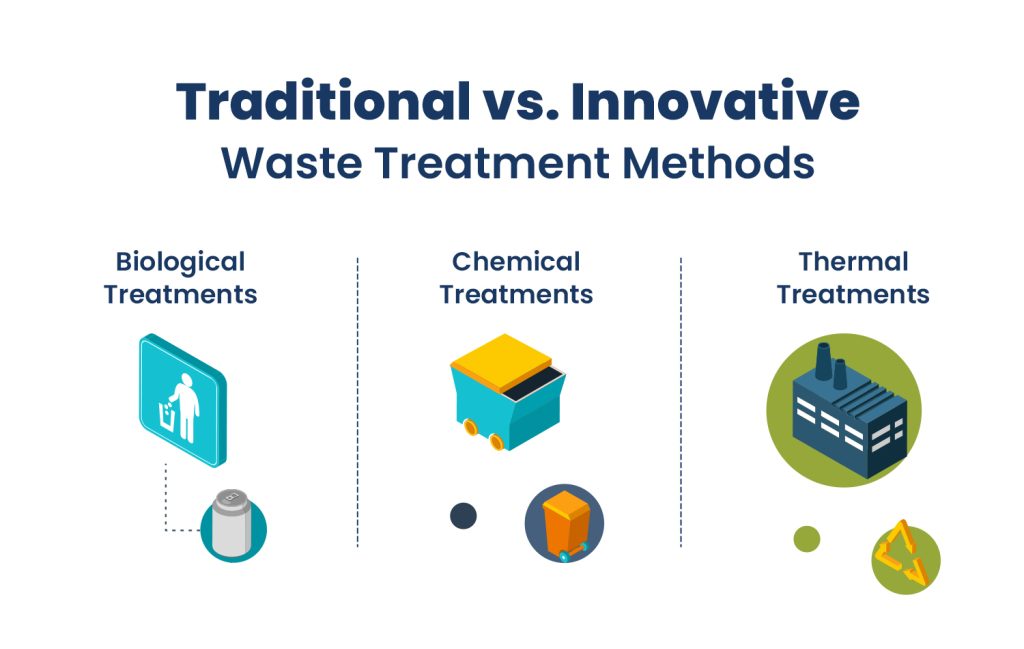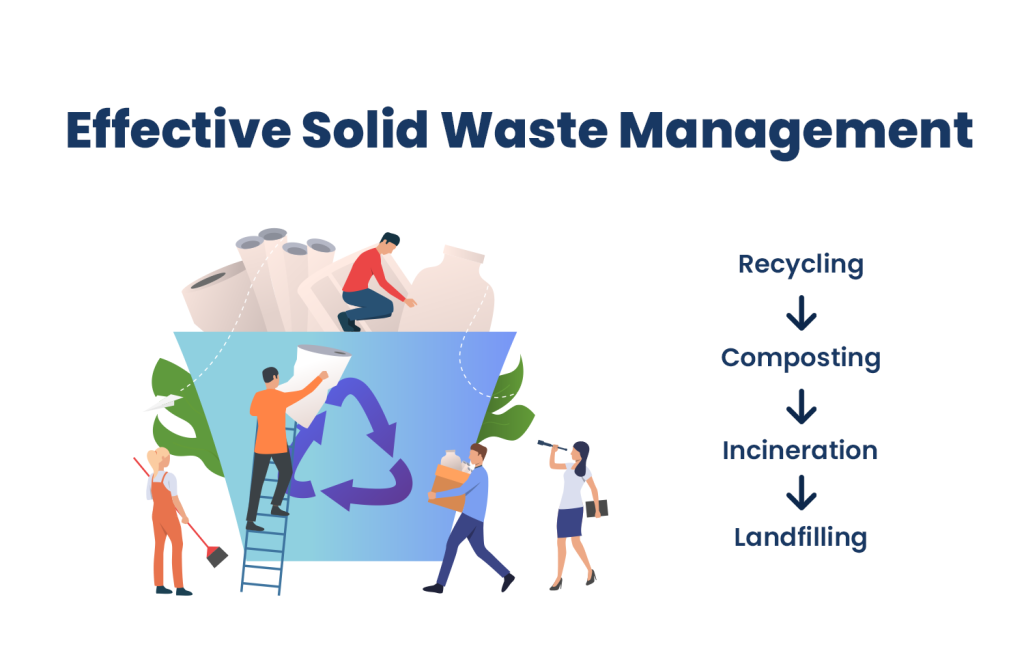
Recycling plays a critical role in waste management by diverting waste from landfills, conserving natural resources, and reducing pollution. It helps close the loop in the lifecycle of products, ensuring materials are reused and repurposed rather than discarded. For businesses, recycling is not just an environmental responsibility but also a strategic initiative that can lead to significant operational benefits. In Africa, where waste management challenges are particularly acute due to rapid urbanization and industrial growth, recycling is a crucial element of sustainable development.
How Businesses Can Benefit from Recycling Solutions?
Businesses can gain numerous advantages from implementing recycling solutions. These include cost savings from reduced waste disposal fees, compliance with environmental regulations, improved brand image, and enhanced corporate social responsibility. Additionally, recycling can foster a sustainable workplace culture and demonstrate a commitment to environmental stewardship. In Africa, businesses that prioritize recycling can also play a vital role in addressing the continent’s waste management challenges, contributing to cleaner cities and healthier communities.
- Cost Savings: Recycling can significantly reduce waste disposal costs by diverting materials from landfills and reducing the need for new raw materials. Businesses can also benefit from potential revenue generated from selling recyclable materials.
- Compliance with Environmental Regulations: Adhering to local and international environmental regulations is essential for businesses operating in Africa. Implementing recycling solutions ensures compliance and avoids potential fines and legal issues.
- Improved Brand Image: Businesses that adopt recycling solutions can enhance their reputation as environmentally responsible and socially conscious. This can attract environmentally conscious customers and improve employee morale.
- Enhanced Corporate Social Responsibility: Recycling demonstrates a business’s commitment to sustainable practices and corporate social responsibility (CSR). This can enhance the company’s reputation, attract environmentally conscious customers, and improve employee morale.
Types of Recycling Solutions
- Paper and Cardboard Recycling- Recycling paper and cardboard is one of the most accessible and impactful practices. Businesses generate a significant amount of paper waste, and recycling these materials helps reduce deforestation and energy consumption. Set up dedicated bins for paper and cardboard, and partner with a local recycling facility to ensure proper processing. In many African countries, informal recycling sectors can also be leveraged to enhance paper recycling efforts.
- Plastic Recycling- Plastics are ubiquitous in business operations, from packaging to office supplies. Implementing a plastic recycling program involves segregating different types of plastics, educating employees on proper disposal practices, and collaborating with recycling partners who specialize in plastic waste. Given the high levels of plastic pollution in Africa, businesses can make a substantial environmental impact by focusing on plastic recycling.
- Metal and Electronic Waste Recycling- Electronic waste (e-waste) and metal scraps are common in various industries. Recycling these materials prevents hazardous substances from entering the environment and allows valuable metals to be recovered and reused. Establish e-waste collection points and work with certified recyclers to handle these materials responsibly. In Africa, where e-waste management is a growing concern, businesses can lead by example in promoting responsible e-waste recycling.
Implementing a Recycling Program in Your Business
- Assess Waste Stream: Conduct a waste audit to understand the types and volumes of waste your business generates. This helps identify key areas for recycling and prioritize efforts.
- Set Goals: Define clear, achievable recycling goals aligned with your business objectives. These goals should be specific, measurable, attainable, relevant, and time-bound (SMART).
- Plan Logistics: Determine the placement of recycling bins, collection schedules, and partnerships with recycling service providers. Consider the specific needs of your business and local recycling infrastructure.
- Educate Employees: Train staff on the importance of recycling and how to properly sort materials. Effective education and communication are key to ensuring participation and success.
- Monitor and Improve: Regularly review the program’s performance and make necessary adjustments to improve efficiency. Collect data on recycling rates and use it to refine your strategy.
Tips for Engaging Employees and Stakeholders
- Communication: Regularly communicate the benefits and successes of the recycling program to employees. Use newsletters, meetings, and digital platforms to keep everyone informed and motivated.
- Incentives: Offer incentives or recognition for employees who actively participate and contribute to the program. This can include awards, bonuses, or public acknowledgment.
- Involvement: Encourage employees to share ideas and take part in recycling initiatives and events. Involving staff in the planning and execution of recycling programs fosters a sense of ownership and commitment.
- Feedback: Collect feedback from employees to identify areas for improvement and address any challenges they face. Use surveys and suggestion boxes to gather input and make necessary changes.
Benefits of Recycling for Businesses
- Environmental Impact – By recycling, businesses reduce their carbon footprint, conserve natural resources, and minimize pollution. This contributes to a healthier environment and supports global sustainability efforts. In Africa, where environmental degradation is a pressing issue, business-led recycling initiatives can significantly improve local ecosystems.
- Cost Savings – Recycling can significantly reduce waste disposal costs by diverting materials from landfills and reducing the need for new raw materials. Businesses can also benefit from potential revenue generated from selling recyclable materials. In Africa, where waste disposal costs can be high, recycling offers a cost-effective alternative.
Enhancing Corporate Social Responsibility
Recycling demonstrates a business’s commitment to sustainable practices and corporate social responsibility (CSR). This can enhance the company’s reputation, attract environmentally conscious customers, and improve employee morale. African businesses that prioritize recycling can also set a positive example for others in the region, promoting widespread adoption of sustainable practices.
Examples of Businesses with Effective Recycling Programs
- Google: Google’s comprehensive recycling program includes initiatives for paper, plastic, e-waste, and organic materials. Their zero-waste-to-landfill policy has significantly reduced their environmental impact and serves as a model for other businesses globally, including in Africa.
- Walmart: Walmart has implemented extensive recycling programs across its stores, focusing on plastic bags, electronics, and packaging materials. Their efforts have led to substantial waste reduction and cost savings, demonstrating the economic viability of large-scale recycling programs.
- Patagonia: Known for its sustainability efforts, Patagonia’s recycling program includes the recycling of worn-out clothing and encouraging customers to return used items for recycling or resale. Their approach to recycling and product lifecycle management is an example of how businesses can integrate sustainability into their core operations.
Key Takeaways and Best Practices
- Leadership Commitment: Successful programs often start with strong support from top management. Leadership commitment is crucial for securing resources and driving the program forward.
- Employee Engagement: Engaging employees at all levels is crucial for the success of recycling initiatives. Create a culture of sustainability by involving staff in planning and implementation.
- Continuous Improvement: Regularly assess and improve the program to adapt to changing needs and opportunities. Use feedback and data to refine your strategy and achieve better results over time.
Recycling is a vital component of effective waste management, offering numerous environmental, economic, and social benefits. For businesses, it represents a strategic opportunity to reduce costs, comply with regulations, and enhance their brand’s sustainability credentials. In Africa, where waste management challenges are significant, business-led recycling initiatives can make a substantial difference in creating a more sustainable future.
Start a Recycling Program with KS Infosystems
KS Infosystems is committed to helping businesses implement effective recycling solutions tailored to their specific needs.
Contact us today to learn how we can assist you in setting up a comprehensive recycling program that not only benefits your business but also contributes to a sustainable future.
Start your journey towards responsible waste management with KS Infosystems, and be a part of the solution to Africa’s waste management challenges.



